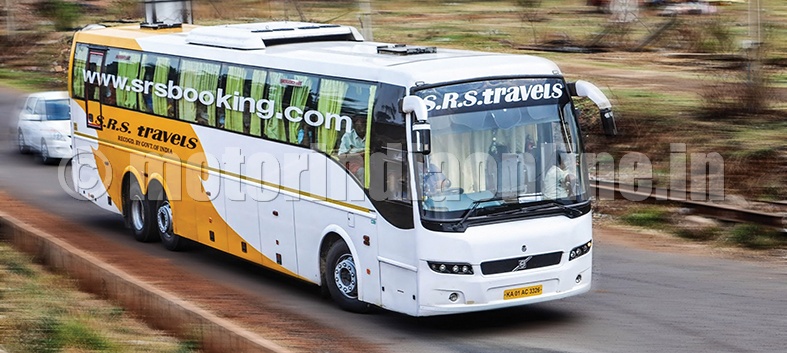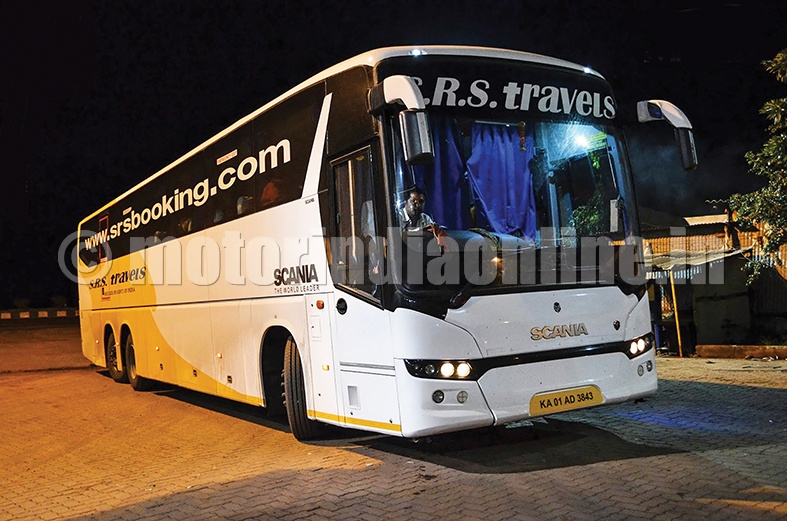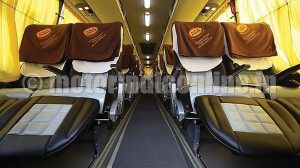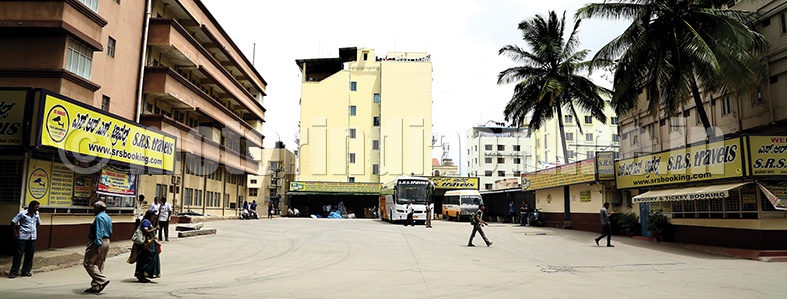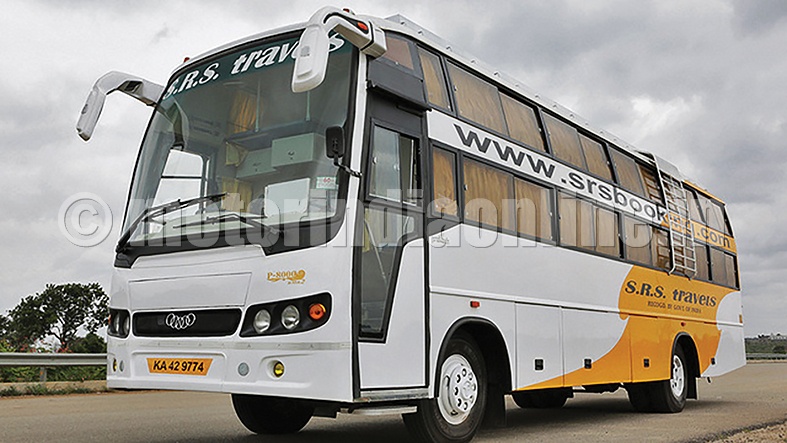Kalasipalayam at the heart of Bangalore city is one of the busiest hubs for long-distance buses connecting various places in the country. It might not be wrong to call the buses ultra-long-distance ones considering some of the destinations they set out to reach. With Bangalore getting more connected to the western part of the country, there is growing focus on reaching the North and North West through bus travel. When in Kalasipalayam, one sure shot sight we cannot possibly miss is a sea of buses painted in yellow and white, all belonging to SRS Travels, one of the biggest names in Indian transportation.
While the location is known for its bustling activity, it is also SRS Travels’ headquarters. SRS, with a fleet of close to 5,500 vehicles hovering across various locations in the country, is not just another transport company. With a broad vision backed by hard work, the company has been built from scratch by Mr. K. T. Rajashekera, the current CEO of the firm. K.T.R, as he is fondly called by his close associates, is a humble, down-to-earth person and a leader by himself.
The beginning
K.T.R recollected the initial days of his family business. It was in 1961 that he started to run stage carriage buses connecting Bengaluru and Kunigal. He started his operations with Fargo buses and Perkins engines at a time when the diesel price was 35 p/litre. With business doing well, he started expanding slowly, and when the government decided to nationalize bus transportation in 1976, his entire fleet was nationalized. He started plying tourist buses as contract carriages in 1981 and subsequently started stage carriage routes as well.
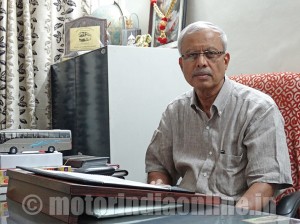
Staff transportation is a highly potential segment at present, but SRS had identified its importance in the early 1990s itself. SRS became an official transporter for Infosys staff in 1994, and since then there has been no looking back as the company added many other MNCs to its customer base, running fleets across Bangalore, Chennai, Pune and many more locations for staff transportation. With more than 80 per cent of his fleet deployed in staff transportation, a dedicated transport manager is assigned for each customer, well supported by courteous staff, all of which have been instrumental in SRS commanding special respect among market circles.
SRS entered the inter-city segment around 27 years back and today it has a 500+ strong fleet of inter-city buses. The company has covered the whole of Karnataka, most parts of Tamil Nadu, Kerala, Andhra Pradesh, Telangana, Pondicherry, Goa, Orissa, Gujarat, Maharashtra, Madhya Pradesh and Rajasthan. It is known for its ultra-long distance buses as well, connecting Bangalore and Jodhpur, a distance of nearly 2100 km, in around 35 hours. This is by far the longest inter-city route in India for which SRS has robust infrastructure and back office support in place.
Apart from this, Mysore – Nagpur, Bhubaneswar – Nagpur, Kanyakumari – Nagpur are routes which are being considered. “Our ambition is to touch the country capital New Delhi from Bangalore”, says K.T.R. He goes on to add: “Going by the way our company is growing, it’s not going to be a big issue internally. But what is really going to matter is the lack of support from the Government to the transport industry which, as a whole, is hit hard by huge taxation with each and every State having its own rules and regulations for taxation. We (the transport sector) are not considered as an Industry at all. While other industries get subsidies and concessions, the transport sector does not get any government support due to the fact that we are not considered as an industry.”
Taxation regulation
Mr. Rajashekera stresses the need for a nodal agency like the National Transport Authority to oversee critical issues such as taxation. At present, the States have the power to abruptly increase taxation, up to twice or thrice the original value, without any information beforehand. States like Tamil Nadu have shifted to weekly tax, and there seems to be no control on the same, except for the fleet operators who convey their pleas to the State Government for tax reduction.
The Andhra Pradesh-Telangana bifurcation is a classic example of the changes in State taxation that can happen overnight. He says: “There should have been some kind of arrangements to protect us from high taxes when the decision on the bifurcation was decided. Now we are paying more than double the tax amount paid previously”. If there was a nodal body available, there could have been tax relaxation for a period of six months to one year, after which the full tax could have been collected.
Also, the current arrangement of tax collection is on a monthly basis, which should ideally be converted to a daily basis. The abrupt increment in taxation by the States is one area where nodal agencies could play a vital role. With more number of premium buses like Volvo and Scania getting added to fleets, the operating economics of such buses becomes viable only when they operate for around 700 to 1,000 kms/day, which would be possible only if they run on inter-State routes, which, in turn, means they would be subject to multiple taxes in multiple States.
K.T.R feels the luxury bus sales are stagnating only because of the high taxes imposed by the government. With both multinational and domestic OEMs developing new products in the luxury bus segment, the sales volumes in this space are not encouraging owing to the fact that the industry is completely ignored and the hefty taxes levied by the States. There are a good number of entrepreneurs like K.T.R who are interested in serving the nation through transport, but lack of nodal bodies and inaction from the government make their task more difficult.
Driver training
Another major issue the Industry faces, according to him, is the acute shortage of drivers. Driving is primarily interest-driven and in spite of the availability of driving schools in different parts of the country, the overall outcome in terms of quality and quantity of drivers is not satisfactory. He suggests a six-month driver training course during which drivers should be trained on handling the vehicle, troubleshooting, performing minor repairs, mitigating major breakdowns, first aid, etc. Such kind of training will make driving a career far more attractive for youngsters and might help solve the perennial issue of acute driver shortage in the industry in the long run.
As a company, SRS pays its employees well, with all employees covered under ESI and PF schemes, towards which the company spends a whopping Rs. 68 lakhs every month. K.T.R also suggests that a portion of the motor vehicle tax should be allocated for a separate fund which could be utilised to pay the family of drivers in case of emergency due to accidents.
Drivers being one of the prime strengths of SRS, they are hand-picked by Mr. Rajashekera even today. The drivers are scheduled for a final interview with the CEO who meets the candidates by around 9 p.m every day. New drivers are trained with the help of expert trainers, and if necessary, are sent to vehicle manufacturers for training. He also motivates them and provides advice on issues such as consequences of drunken driving.
Insurance issues
Another area, according to him, is vehicle insurance. Today, around 2 to 2.5% of the vehicle cost is spent on insurance premium, and though the accident claims in a government bus can go up to Rs.1 lakh, it is unlimited in case of private vehicles, resulting in a very high insurance premium, which adds to the operating costs in a big way.
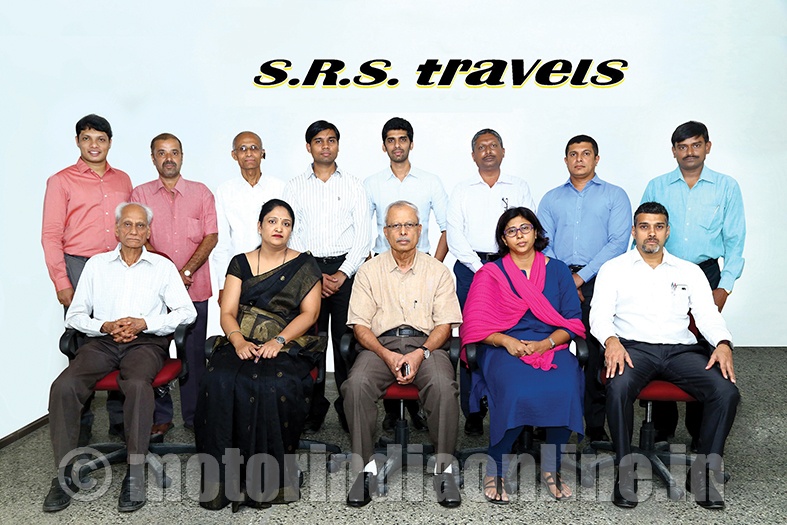
“Paying towards claims is not the only work of insurance companies. They should join hands with us to train drivers as well. We have spoken to a few insurance companies, and they have shown good interest”, says Mr. K.T.R, who feels the government should allow more companies to enter the insurance domain. He adds that the Motor Vehicles Claim Tribunal which is currently redundant should be revoked and all claims settled through the body.
Fleet maintenance
Coming to the company’s fleet maintenance, SRS has facilities for complete bus body building in the event of accidents, reconditioning of major aggregates, wheel balancing and wheel alignment, painting, etc., with maintenance yards in Chennai, Hyderabad, Pune and Bangalore. While the company is increasingly moving to alloy wheels which have resulted in substantial improvement in fuel efficiency, most of its fleet has shifted to tubeless radials which it hopes would become a standard fitment from the OEMs in the near future. Though SRS is yet to try automated manual transmission, it has had a satisfying experience with the performance of automatic transmission.
The company is inducting more sleeper buses, driven by passenger requests, and since parcels are a good source of added revenue, the company is studying the scope for semi-low floor front engine inter-city buses which come with higher luggage space in between the floor and chassis, as compared to regular floor buses.
To sum up, Mr. Rajashekera is confident that a small push from the government will help his business and the entire industry grow in a big way. He strongly feels that agriculture and transportation are two main fields which a developing country should focus on, and expects the government to do so. Assuming his hopes would be fulfilled, one can expect SRS to reach greater heights in the coming years.
